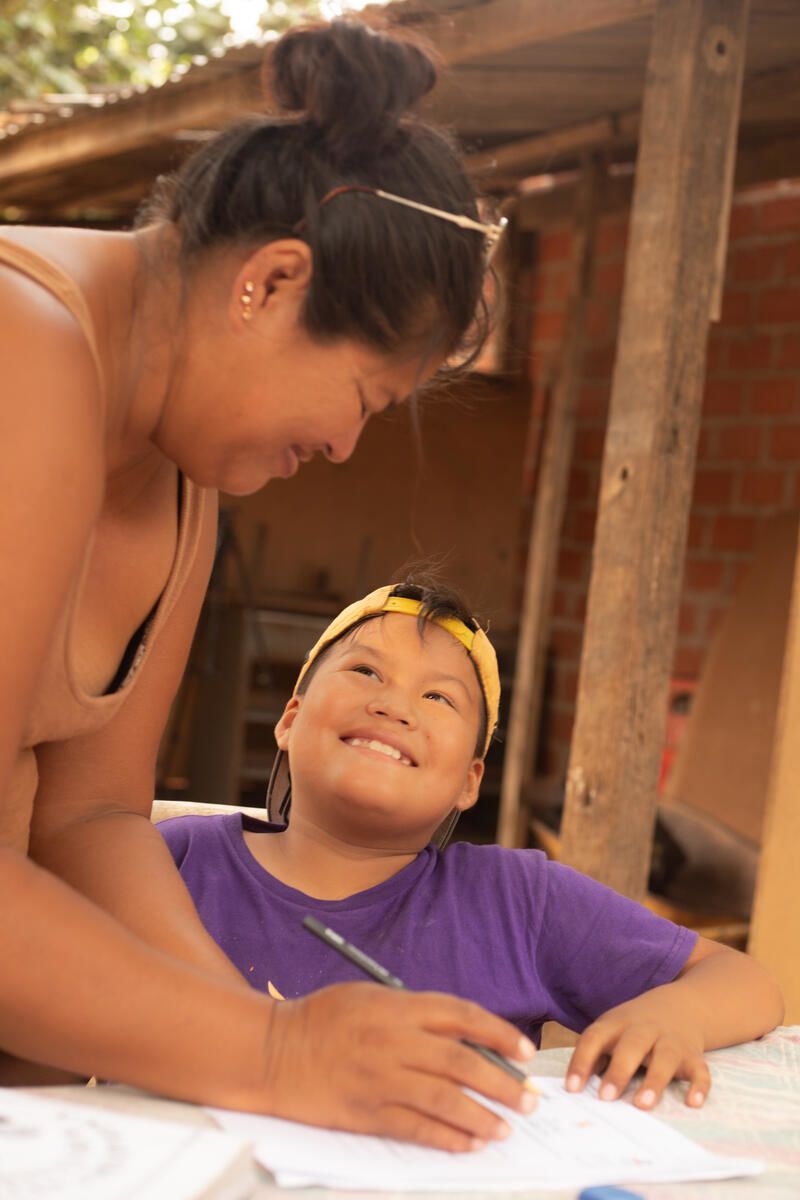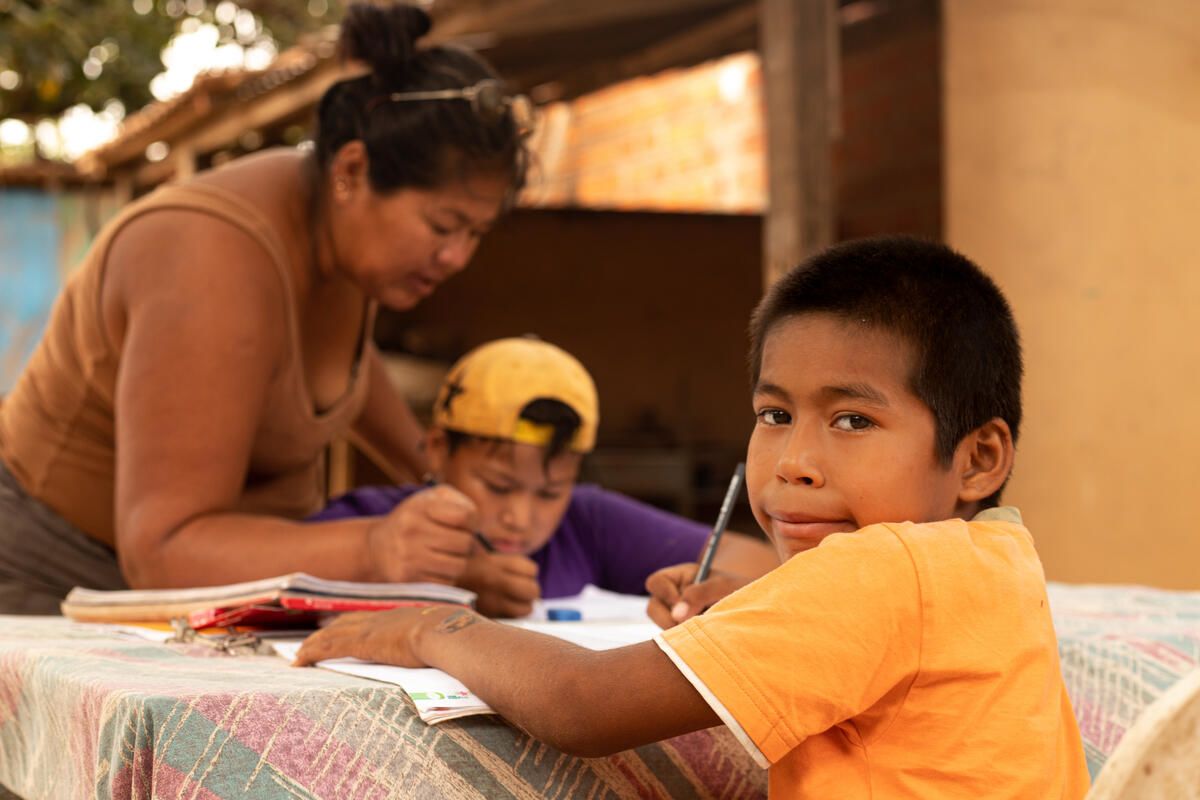Making him visible
How child sponsorship provided
Moisés and his twin brother
Francisco in Bolivia, the
opportunity to get an
education for the first time

Imagine if you could empower a 10-year-old boy go to school for the first time – just by helping him get a birth certificate.
His first day at school could be the last day he is left behind and invisible in his community.
Moisés and his twin brother Francisco always wanted to learn. But when they were old enough for the first grade, their mother María Elena couldn’t register them for school because she had lost their identity documents. In their country Bolivia, you can’t go to school without them.
A single mother, she couldn’t afford to pay for replacement documents – her inconsistent work as a cleaner was barely enough to keep food on the table and a roof over their heads.
It’s amazing how something so small can lead to a lifetime of hardship and lost opportunities. With no other option, María Elena tried to teach the boys herself at home instead of formal education.
But, as the years went by, it became clear that they were falling further and further behind other children their age, but everything changed when World Vision partnered with Moisés and Francisco’s community with their child sponsorship programme.
“I knew I had to ask for help to get their documents so that they could move on. Thank God, now they both have documents. And they started studying this year!"
Moisés and Francisco started first grade in February 2020, at the age of 10. Because of the time lost, they are by far the tallest and oldest in their classes, but Moisés has decided to make it his job to protect his smallest classmates.
“I don’t like violence,” he says. “I want to be a policeman when I grow up, so I am starting by protecting the small children now.”
The situation Moisés and Francisco faced is not unique. According to UNICEF[1] , over 166 million children across the world remain invisible to their government and unable to fully participate in their communities each year. They often can’t access education or health services, and because they are not officially recognised as citizens, they are vulnerable to exploitation, abuse and underage marriage or recruitment into armed forces.
That’s why the child sponsorship programme helps families to register their children and get a birth certificate – it is a foundation for their protection and well-being.
Sadly, just a month after Moisés and Francisco’s enthusiastic start at school, COVID-19 restrictions closed their school and all formal classes eventually suspended in March. The boys were devastated.
Although their teacher continued to send tasks to parents via smartphone messages, Moisés and Francisco were again left behind because María Elena couldn’t afford a smartphone or an internet package to access the materials. Because of the COVID-19 restrictions, she was also out of work and it wasn’t long before María Elena contracted COVID-19 herself.
Being part of the child sponsorship programme, World Vision was able to bridge the gap, providing school materials and other supplies Moisés and Francisco desperately needed during lockdown.
“They brought us food when the pandemic started, in those days when you couldn't get out, when I fell into bed with the coronavirus. Thank God, now I'm on my feet again."
“Because of the school supplies, now my boys are studying again. Thank God they could continue studying, they are in first place!”
The boys are now preparing for grade placement tests so they can soon jump grades and attend classes with children their own age.
“I tell them that they have to study and make the effort, because then they can get ahead. They can do it if they keep studying and work hard," she says.
This year is not the first time Moisés and Francisco have been locked out of school – but it’s definitely the last time they will be left behind.
It’s been a difficult year for all of us, but Moisés and Francisco are making it count.
So can you. Imagine the world of firsts you could create in a child’s life today.


